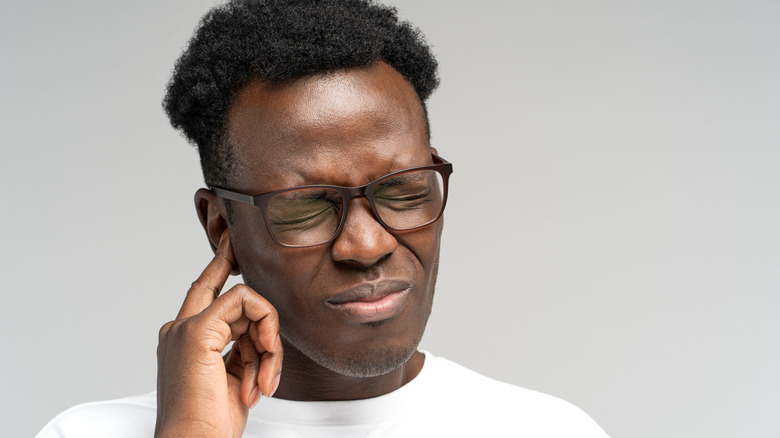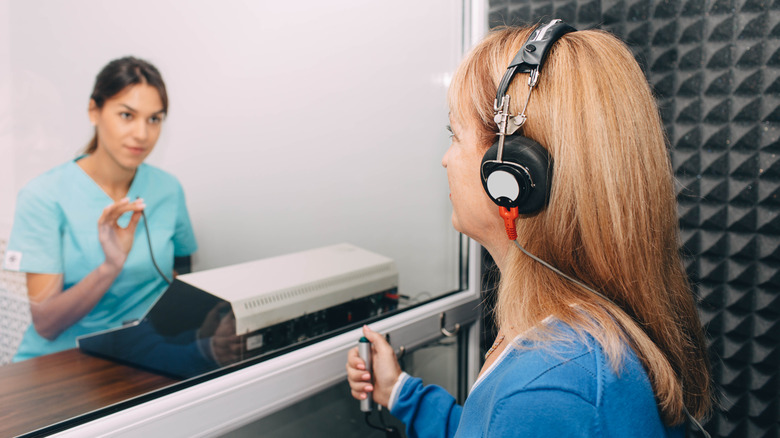What Happens If Hearing Loss Goes Untreated?
In the United States, roughly 37.5 million people over the age of 18 experience difficulty hearing (via National Institute on Deafness and Other Communication Disorders). With prevalence rates twice as high as those of cancer or diabetes, hearing loss is the third most common chronic physical condition amongst Americans, reports the U.S. Centers for Disease Control and Prevention (CDC).
While hearing loss is predominantly associated with aging, the condition can affect anyone of any age. Healthy Hearing reports that hearing loss in either one or both ears affects an estimated three out of every 1,000 children in the U.S. Aside from age, factors such as work conditions and exposure to loud noise — including high volumes from personal audio devices or concerts — can contribute to hearing loss (via CDC). If left untreated, hearing loss can impact our mental and emotional health, and leave us vulnerable to developing unwanted health conditions.
Untreated hearing loss can put you at risk for serious health issues
Hearing loss that progresses without treatment can significantly impact cognitive function. According to a 2020 report published in The Lancet, any level of hearing loss increases one's risk for dementia (via Hearing Life). The report revealed that the likelihood of developing dementia corresponds with the severity of hearing loss; those with mild hearing impairment are twice as likely to develop the condition, while those with moderate hearing loss are three times more likely, and those with severe hearing loss are five times more prone to developing dementia.
Untreated hearing loss also may negatively affect one's mental clarity and memory. When struggling to hear, more of our mental energy is directed towards listening, and according to experts at Hearing Life, "the extra cognitive resources required to listen reduce the resources available for memory and comprehension."
How often should you get your hearing examined?
Furthermore, untreated hearing loss can take a toll on one's mental health. According to Healthy Hearing, more than 90% of adults with impaired hearing are over the age of 50. As a result, seniors may experience a greater sense of isolation, as older adults with hearing loss are up to 24% more likely to withdraw from social events (via Hearing Life).
Because our hearing is a vital part of our health, it's important to get tested regularly. Audiologist Paul Pietrzyk states via TriHealth, "Few adults give their hearing much thought unless they are experiencing a noticeable loss or a sudden change in their hearing ability. By then, their options for treatment may be more limited, so it's important to follow the guidelines to detect hearing loss early." Healthy adults between the ages of 18 and 40 should get their hearing checked every three to five years, while those over the age of 60 or those with frequent exposure to loud noise should consider getting tested more often.



